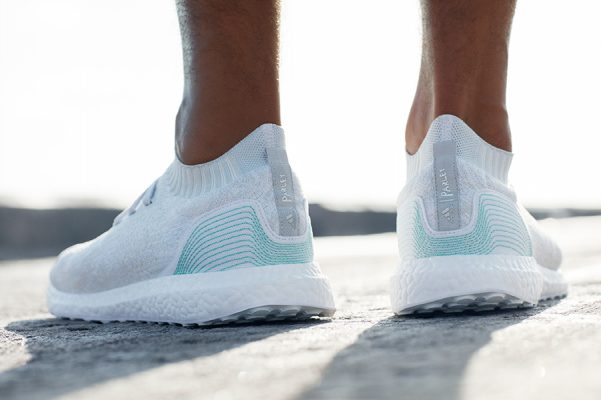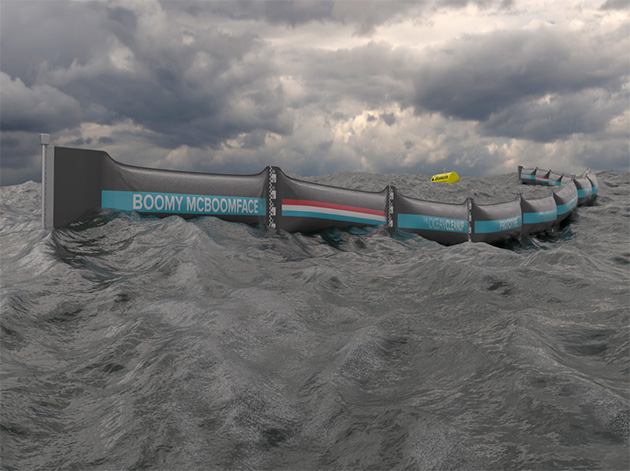The adidas UltraBOOST Uncaged Parley is now on sale, with an limited run of 7,000 pairs. It is made of up-cycled ocean plastic and other recycled material.
A new trainer made of ocean plastic has been unveiled by adidas.
The new footwear is made up of plastic waste retrieved from the Maldives and recycled polyester.
Each pair is made reusing 11 plastic bottles.
The laces, heel cap base material, heel webbing, heel lining and the sock-liner cover are also made with recycled materials.
The shoe has been created in partnership with Parley for the Oceans – an environmental organisation and collaboration network that raises awareness of ocean pollution; adidas is a founding member.
Initially, just 7,000 pairs will be available to buy at a cost of €200/£172.
adidas said the design of the shoe is inspired by ocean waves, to reflect the trainer’s “unique story and adidas and Parley’s commitment to end the cycle of pollution in the oceans.”
It has been created using “new technologies specifically engineered to up-cycle marine plastic debris into technical yarn fibres,” said the sports company.
Commenting on the launch, adidas group executive board member responsible for global brands,Eric Liedtke, said: “This represents another step on the journey of adidas and Parley for the Oceans. But we won’t stop there.”
“We’re now committed to scaling those initiatives. We will make one million pairs of shoes using Parley Ocean Plastic in 2017 – and our ultimate ambition is to eliminate virgin plastic from our supply chain,” he promised.
adidas’ 2017 target will mean that at least 11-million bottles retrieved from coastal areas by the Parley Global Clean-up Network and Remote Island Interception operations will be recycled and repurposed into sportswear.
This plan, said adidas, “forms part of a larger commitment by the brand to increase the use of more sustainable materials in its products and to make eco-innovation the new industry standard through implementation of the Parley A.I.R. Strategy (avoid, intercept, redesign), which aims to end the cycle of marine plastic pollution long-term.”
Update your wardrobe! Sailing wear for women
Whether you are sailing in the UK or in warmer climates this autumn, choosing the correct clothing is important to…
A step closer towards ridding oceans of plastic
Ambitious plans to rid the world's oceans of plastic have now moved forward as the Ocean Cleanup unveil its first…
Brewery targets marine pollution by inventing edible six-pack rings
The edible six-pack rings are made from brewing by-products and are now being trialled. It's hoped they will eventually replace…






